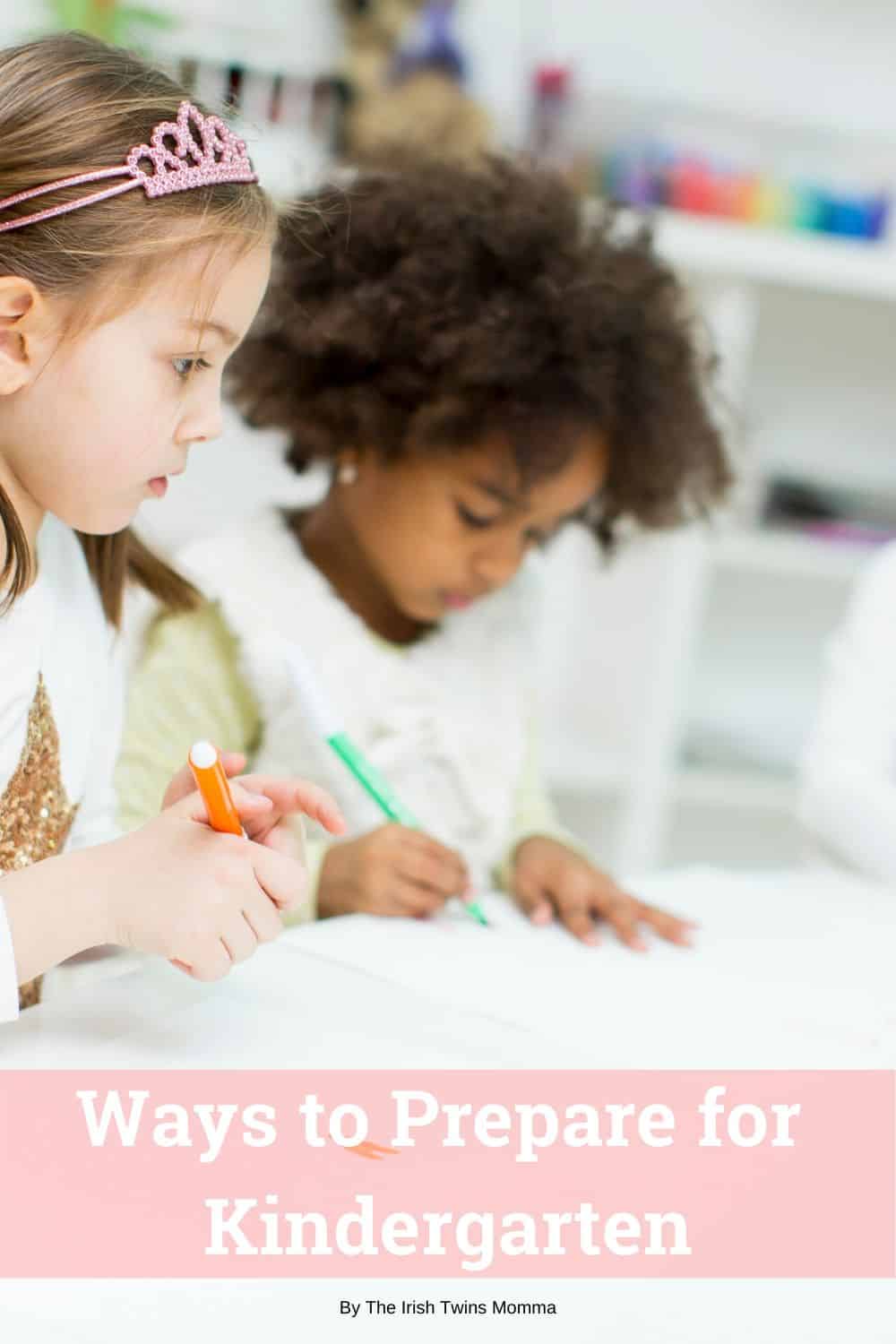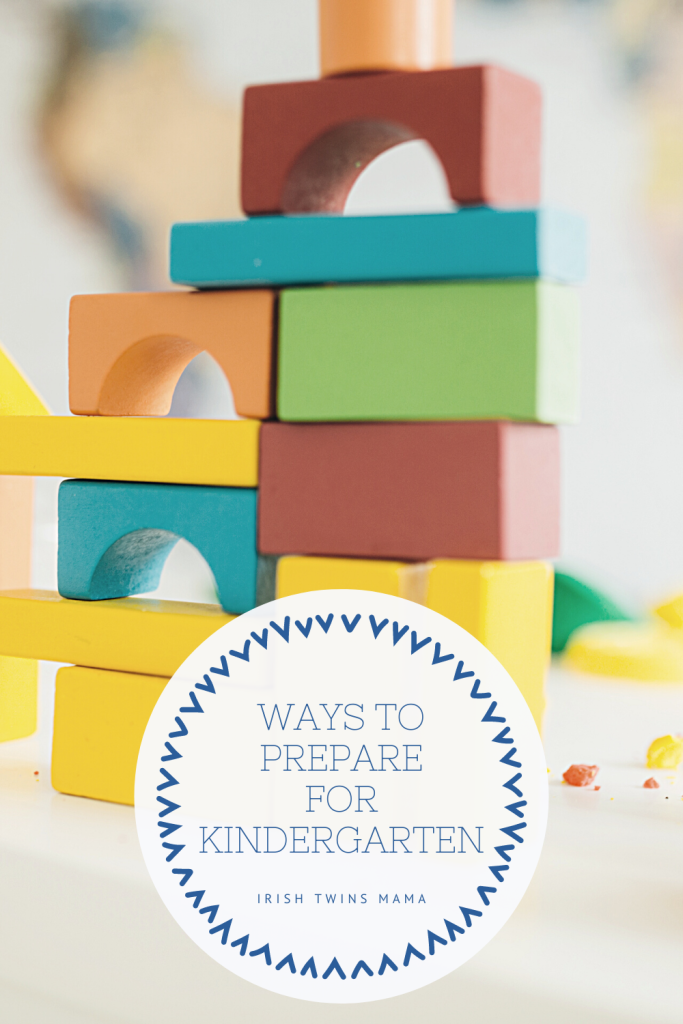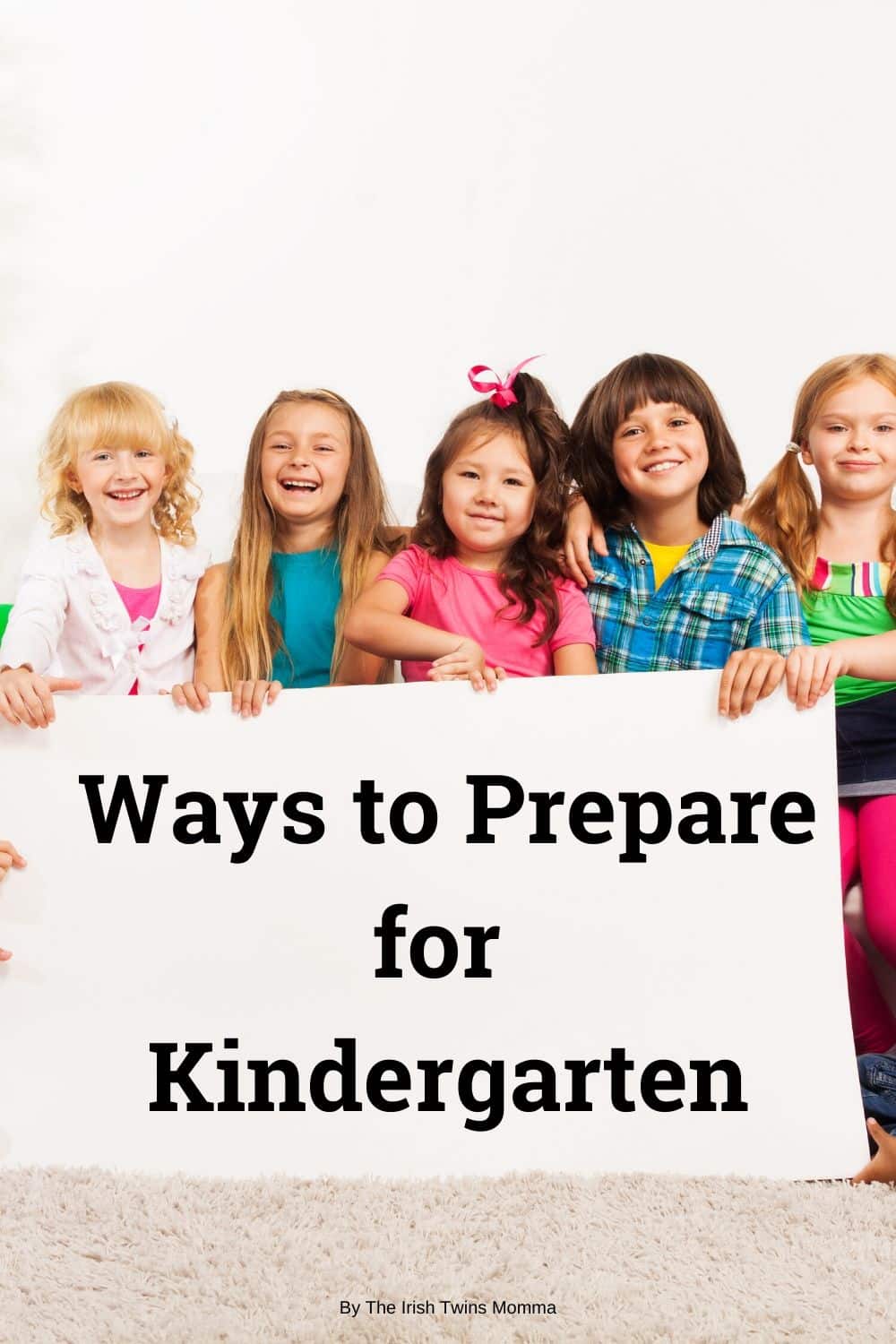This post contains affiliate links. If you click and buy, I may make a commission, at no cost to you. See my disclosure policy for more information.
Kindergarten is the beginning of formal education for children ranging from 5 to 6 years of age. It is where children are taught playfully in the traditional classroom. The kindergarten schedule is regularly Monday thru Friday. In this guide, I provide the best ways to prepare for kindergarten to make a successful transition for you and your kid(s).
Where did Kindergarten originate?
It originated in Germany by Friedrich Froebel, a German educator. He established a school in Blankenburg, Germany, in 1837, where he characterized the children in his school as plants and the teachers as gardeners. Kinder in German means “children,” and Garten means “garden.”

How to know if your child is ready for Kindergarten?
Most schools use birthday cutoff dates and the deadline for registration. The birthday cutoff date is to help determine who’s eligible for a Kindergarten class. However, age isn’t the only way to measure your child’s readiness.
Your child is probably ready to start Kindergarten if he/she can follow simple directions, sit still, use the restroom by themselves, recognize some letters or numbers, work on fine and gross motor skills, and handle emotions. However, it is normal for a 5-year-old to break into tears when upset. They are still learning how to manage those emotions and communicate them.
Think about how well your child can communicate and listen. Don’t think about the skills they may not have mastered yet, but their eagerness to continue learning.
Tips to make the transition to Kindergarten easier:
1. Visit the school
It is a great idea to show your child around the new atmosphere they will spend a lot of time in. For instance, where their classroom(s) are, cafeteria, bathrooms, playground, and more.
Janette Pelletier, assistant professor of human development and applied psychology at the Ontario Institute for Studies in Education of the University of Toronto (OISE/UT), shares that “research shows that children are most often upset because they’re unsure of what’s going to happen next, where they put their things, who their teacher is, what they’re supposed to do.”
2. Practice getting ready for school.
Work together to make a routine that fits both you and your child. Plan out if your child is going to be riding the bus or if you will be taking them and bringing them home. Some schools provide a “First Start” program to give them the practice of riding the bus, but you can always do a little role-playing, like mom playing the bus driver as well. Also, having someone greet your child as they are coming off the bus can help calm anxiety and prevent the case of missing a bus stop during the first week.
- Decide if laying out clothes the night before is better than searching for them first thing in the morning.
- Try to provide a nutritious breakfast, or if you are dropping off your child early, most schools offer breakfast at an additional cost.
3. Help them make friends
A new social scene can be very frightening. However, you can easily worry about the summer before. Ask around your neighborhood to uncover possible classmates and set up a playdate or two so they will have a couple of friends who will know.
4. Let your child participate in picking out their school supplies
- Pencils
- Folders
- Notebooks
- Crayons and Markers
- Tissue boxes (Most teachers request a child to bring in a box of tissues)
5. Have your child participate in lunch planning
- The most recommended item for lunch boxes for kids is the bento box.
- Let them help you decide what to make or buy for lunch boxes.
It is not recommended to fill up your child’s lunch with sugary foods as it will give them a spike in the glucose levels in their body. This will result in a slump later in the day which will cause your child to feel tired, which is not a good way to feel if you are trying to learn and grow.
6. Make the big day special and be positive with the drop-off.
Take your child back-to-school shopping. A new outfit and pair of shoes often make your child feel more confident, and it builds anticipation for the first day. You could even let your child pick a celebratory dinner for the first day back to school.
Often parents take pictures of their children on their first day back to school, and it is great to see your child’s growth progression.

When dropping off, stay positive even if you feel the emotions building. This is a huge milestone and adventure that you are both embarking on. Kindergarten is the beginning of formal education for children ranging from 5 to 6 years of age. It is where children are taught playfully in the traditional classroom. The kindergarten schedule is regularly Monday thru Friday. It is an emotional time for most parents like myself, as I can still remember giving birth to my son like it was yesterday.
- Say when you’ll be back and that you’ll look forward to hearing about her first day.
- Ease someone else in. Suggest that he sit beside a special friend or near the teacher.
- Stay for a few minutes (if necessary and with the teacher’s agreement)
I genuinely hope that you and your child have a magnificent school year.
Sincerely,



Kimberlie
Excellent post on preparing for kindergarten. My son is actually going to pre-k, depending on what’s decided and your tips are helping for us, too.
Chyna | MadeNewMama
This post was right on time. My daughter passed her early entrance assessment and mommy was getting a bit overwhelmed. Thanks for the tips and sweet words to enjoy the process together.
Kelly A Gegg
Wonderful post! With everything going on in the world, I’m personally leaning towards home-schooling, however, these are all still great tips and tricks for everyone!!!